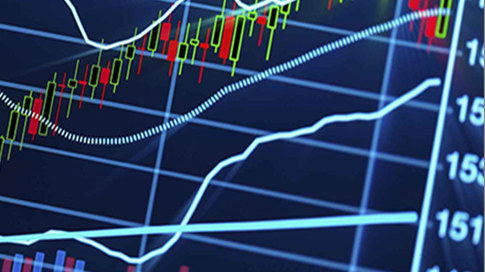Markets.com Review
August 14, 2018
eToro Review
October 2, 2018A Simplified Guide to Social Trading in 2023

Are you interested in social trading but confused about where to start? Then you’ve come to the right place.
You’ve probably already done a fair bit of “Googling” – trying to search for the answers to all your questions.. It’s likely you were overwhelmed (or underwhelmed) with all the information out there? Don’t stress – we are here to help!
Below is a guide on all things social trading. What it is, why people are interested in it, the advantages, the risks, plus more.
Social trading is a way for retail traders to access the world’s financial markets and follow expert traders. Traders will copy an expert’s trades direct to their own trading platform.
It’s perfect for traders who are interested in the markets but do not have the time to analyse the market. Or for those that have little knowledge of the markets, and also for those that simply want someone to trade on their behalf.
Apart from social trading being a positive disruption to traditional financial investing, there are many other benefits. We have listed a few below;
Ever heard of Facebook or Instagram? LinkedIn or Twitter? We’re sure you have.. Well social trading is no different to those, except you won’t be sharing selfies of your holiday in the sun. Instead, you will be sharing trading strategies, market insights and following successful traders who have a proven trading record. You will learn from their trading methods and strategies, and hopefully become a successful trader yourself!
Following a Trader
Once you’ve conducted your research and found a trader (or two) that you enjoy following, you can then choose to follow him or her so you can watch their trades, view their commentary and learn about their trading techniques & strategies. You will learn so much from this process, plus you can ask them questions when you’re confused which will enhance your education and hopefully turn you into an expert trader one day! Our advice is to always follow traders who consistently communicate with their trading network, as they are the ones you will learn the most from.
So far, social trading seems to be pretty good right? Well don’t be fooled – online trading isn’t all plain sailing otherwise everyone would be doing it. Whilst this form of trading can be a very profitable avenue for some people, it’s important to point out that there are a number of inherent risks involved and you should carefully consider if it’s appropriate for you. Here are some of the risks involved;
 You can lose a lot of money
You can lose a lot of money
Social trading is still financial trading! And with most things financial, there are always risks involved. Please do your research before deciding whether financial trading is for you or not – and if it’s not, stay away from it! We’d recommend testing out a few demo accounts first to test the water.
 Trusting someone you don’t really know
Trusting someone you don’t really know
OK, so you’ve found your ideal expert trader and have started copying their trades. This does not guarantee you success! Even the very best trader’s have bad days and if they have a bad day, and you’ve copied their trade/s – you will be liable for any losses, not the expert trader. Never forget that it’s your decision to copy someone’s trades and no-one else’s decision.
 Past performance no guarantee
Past performance no guarantee
Like we mentioned above, even the very best trader’s have bad days and so their solid past performance is no guarantee that it will always continue. You must always be aware of the risks involved with online trading – absolutely nothing is a 100% certainty while trading.
There are a few considerations you should assess in order to become successful at social trading;
Find the best social trading broker
There are many social trading brokers, however only a few truly stand out. Our recommended social trading broker is Pepperstone. Always select a regulated broker, and one that has segregated client bank accounts so your trading funds are safe. Trading with an unregulated social trading broker is a massive risk. Pepperstone is fully regulated by ASIC in Australia, plus holds 6 or 7 other licences.
Pick the traders you will follow
Once you’ve opened a social trading account with a broker, you’ll need to decide who you’d like to follow. We’d recommend testing a few out on a demo account to find some traders that you enjoy following. Are they engaging? What are their trading techniques and strategies? Which markets do they trade on? What is their success rate? Do they respond to your questions? Always follow traders who communicate with their trading network on a regular basis.
Social trading costs
Another important consideration is that of trading costs – i.e. how much a broker will charge you to copy their trader’s.


